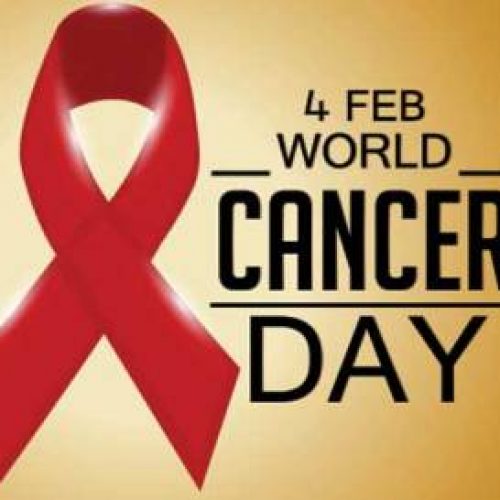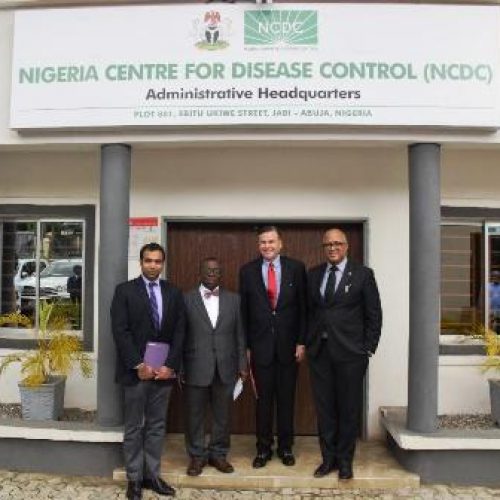How effective use of PrEP ring reduces HIV in women by 50% – NHVMAS
-
says women aged 15–49 twice likely to be living with HIV than men
Lately, it appears that there’s less mention of HIV on the lips and programs of government authorities in Nigeria despite the high prevalence of the virus in the country.
More worrisome is the fact that more women are prone to the virus than men, according to checks by New HIV Vaccine and Microbicides Advocacy Society (NHVMAS), a non-governmental organization that promotes research development.
NHVMAS’ checks showed that more women contract HIV than men and it’s advocating PrEP ring for women to reduce the spread.
From NHVMAS’ study, the national HIV prevalence is 1.4 percent among adults aged 15–49 years.
It says: “Women aged 15–49 years are more than twice more likely to be living with HIV than men (1.9 percent versus 0.9 percent)
“HIV prevalence was the highest among females age 35-39 years at 3.3 percent, highest among males age 50-54 years at 2.3 percent.
“The difference in HIV prevalence between women and men is greatest among younger adults, with young women aged 20–24 years having almost four times as likely to be living with HIV as young men in the same age group, (1.3 percent verses 0.4 percent).”
This was why NHVMAS was recommending PrEP ring as a National HIV prevention tool in Nigeria in line with WHO recommendation. It also stated that PrEP ring is crucial to achieving HIV epidemic control in the country.
What is PrEP ring?
Executive Director of NHVMAS, Mrs. Florita Durueke, at a media training described PrEP ring also knows as dapivirine vaginal ring or oral PrEP, as a flexible vaginal ring made of silicone that slowly releases an antiretroviral (ARV) drug called dapivirine, over the course of one month to reduce the risk of HIV infection. It was developed by the International Partnership for Microbicides (IPM).
She said that Dapivirine vaginal rings can reduce HIV incidence when used with high adherence. According to her, recent open label studies showed greater adherence to the ring adding that modeling data suggest that HIV risk is reduced by about 50 percent
She said: “It is recommended for cisgender women aged 18 and older at substantial risk of HIV and who are unwilling or unable to use oral PrEP as recommended by the World Health Organization.The ring presents an additional option for women who want to protect themselves from HIV as the family planning field has shown that more options can lead to higher uptake of prevention methods overall.”
How it works
She said: “The ring can be inserted by women without help from a health care provider – a health care provider may insert the first ring, if wanted, to ensure that the woman is familiar with how the ring should be inserted
“The PrEP ring provides steady release of dapivirine over one month without the need for maintenance –Low maintenance means less burden on the user to remember doses, and may encourage more consistent use. It can be stored, inserted, and removed in private
“During clinical trials, it was rarely felt by women or male partners. Many women in clinical trials reported that they and their partners could not feel the ring during sex.”
Durueke explained further: “Modelling studies show that multiple prevention options are needed to end the HIV epidemic. Therefore, products like the ring could have a meaningful public health impact as part of a comprehensive prevention strategy. If approved and successfully rolled out, the ring would expand choice and increase the number of women successfully using an HIV prevention method.
“New, women-centred options, such as the ring, are crucial to achieving HIV epidemic control,” she concluded
About author
You might also like
World Cancer Day: Minister advocates physical exercises to reduce risk
ABUJA – As Nigeria joined the rest of the world in commemorating the 2018 World Cancer Day, the Minister of Health, Prof. Isaac Adewole, has called on Nigerians to always
Expert identifies diarrhoea as cause of 25% stunting in Nigerian children
• Says 45,000 children die annually from lack of hygiene globally The Water and Sanitation (WASH) Specialist for the United Nations Children Education Fund (UNICEF), Maina Banga, yesterday June 11, identified
US Ambassador visits NCDC
• says centre is a model for Africa The United States Ambassador to Nigeria, Mr. Stuart Symington, today, September 10, commended the Nigeria Centre for Disease Control (NCDC) for being








0 Comments
No Comments Yet!
You can be first to comment this post!